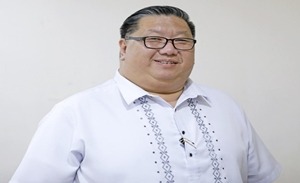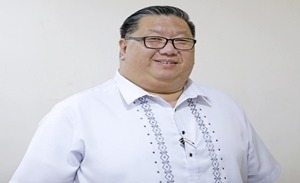
Under his guidance, Meralco achieved unprecedented milestones, clinching a historic 3-peat Company of the Year title at the IABC Philippine Quill Awards, scoring the only PR Team of the Year trophy bestowed at the Anvil Awards, and securing numerous honors at international and local communication awards.
Manong Joe’s leadership also extends as a respected member of the Board of Trustees for the Public Relations Society of the Philippines (PRSP), concurrent with his role as Chairman of the International Association of Business Communicators Philippines (IABC Philippines) where he also served as its President.
Manong Joe is a distinguished awardee of the medallion of honor and scroll of commendation from the University of Manila, owing to his years in public service as a communications professional. He shares his insights through columns in renowned publications, including The Philippine Star’s The Z Factor, and Philippine News Agency’s ESPRESSO MORNINGS.
Several alarming incidents of animal cruelty and abuse have recently made headlines—igniting widespread outrage, calls for accountability, and highlighting the need for stricter penalties for abusers.
Just last week, a cat was allegedly brutally kicked by a foreign national in Makati City which sadly led to the animal’s untimely death. Another incident involved a dog in Negros Occidental that was used as a makeshift dart board, in what Senator Grace Poe described as a “barbaric act.”
The Makati incident prompted an animal welfare group to offer an incentive for those who could provide the whereabouts of the man involved, while the Negros incident prompted the local government unit to offer a cash reward for anyone who can identify the abusers of the dog.
The string of animal abuse cases doesn’t stop there.
In La Union, a woman recently lost five pet dogs, which were allegedly poisoned by her neighbor on claims that the animals were killing the latter’s chickens. The dog owner decried the incident, saying her neighbor should have handled the matter properly by reporting it to the barangay instead of resorting to animal cruelty. An animal welfare group is investigating the incident to identify accountability.
While these are different cases of abuse, all these incidents highlight the power of social media and public pressure to generate concrete action such as policy review, increased public awareness and vigilance, government intervention, as well as private sector support.
In this age of quick virality and online trends, social media has become an effective platform to give voice to the voiceless and raise awareness on social concerns that often otherwise would be neglected.
Animal welfare organizations and concerned citizens can now share evidence of abuse instantly to mobilize public support and pressure authorities to take action. In this case, the power of social media rests in its capability to force authorities, especially law enforcement, to respond with urgency and act on cases of abuse and maltreatment.
Now, accountability is just a click away.
Of course, it goes without saying that response to these incidents should include strict verification of information first to ensure that proper action is taken and not just social media lynching.
While these animal cruelty incidents show the disappointing and inexcusable brutality of some individuals, the public outcry over it also demonstrates the growing awareness on animal welfare among Filipinos.
The outrage generated by these recent animal cruelty incidents shows that more and more Filipinos are becoming increasingly aware of the need for stricter animal welfare and protection laws.
The challenge here is ensuring that public uproar translates to policy and community action otherwise it just ends up as noise.
Our lawmakers should capitalize on this momentum to fast-track policy action and amend the 1998 Animal Welfare Act. The proposed measure seeks to introduce stricter standards and tougher penalties—increased jail time and heftier fines—for violators (both Filipinos and foreigners alike). In addition, offenders should be mandated to undergo animal welfare seminars to rehabilitate them.
The Makati incident, which involved a foreign national for example, highlights the need for government to promote greater awareness of animal welfare among foreign tourists and expatriates to hold them accountable for their actions here in the country.
Ignorance of Philippine laws is not and should not be taken as an excuse. These foreign nationals chose to visit the Philippines and therefore have the responsibility to be informed of our country’s laws and customs.
It however must be noted that animal welfare should not be limited to the usual pets such as cats and dogs but should be holistic to include care and protection of endangered species too.
If there is any light at the end of the tunnel, there are animal welfare groups spearheading the call to prevent and address animal abuse. My hats off to two particular personalities spearheading this fight. Rina Ortiz of Biyaya Animal Care and Atty. Anna Cabrera of the Philippine Animal Welfare Society (PAWS). May their tribe increase.
Here in Meralco, we have our own “Catropa” program, where we make sure community stray cats are given a fighting chance in our compound in the main office and soon in our other areas as well.
Let us not let this momentum go to waste. We should continue to raise awareness of the importance of animal welfare by exposing cases of abuse and holding those responsible accountable.
After all animal welfare is not just a charitable advocacy, it is an investment in our social progress—a collective effort towards a more compassionate and healthy society not just for people but for all living creatures.





